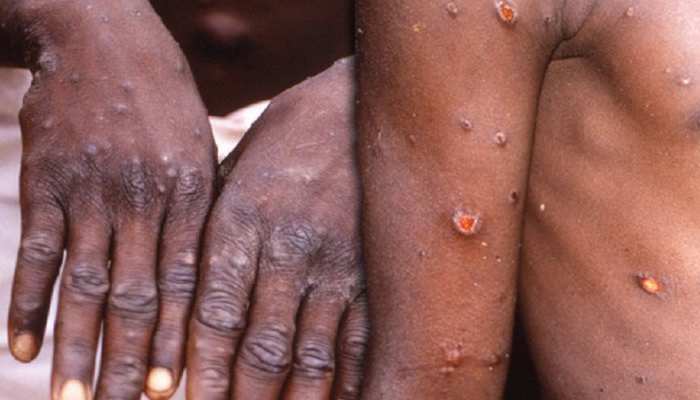London: As more cases of monkeypox are detected in Europe and North America, some scientists who have monitored numerous outbreaks in Africa say they are baffled by the unusual disease’s spread in developed countries.
Cases of the smallpox-related disease haven’t previously been seen among people with no links to central and West Africa. But in the past week, Britain, Spain, Portugal, Italy, US, Sweden and Canada all reported infections, mostly in young men who hadn’t previously travelled to Africa. France, Germany, Belgium and Australia confirmed their first cases of monkeypox Friday.
“I’m stunned by this. Every day I wake up and there are more countries infected,” said Oyewale Tomori. He is a virologist who formerly headed the Nigerian Academy of Science and who sits on several World Health Organisation advisory boards. “This is not the kind of spread we’ve seen in West Africa, so there may be something new happening in the West,” Tomori stated.
Monkeypox typically causes fever, chills, a rash and lesions on the face or genitals. WHO estimates the disease is fatal for about one in 10 people, but smallpox vaccines are protective and some anti-viral drugs are also being developed.
One of the theories British health officials are exploring is whether the disease is being sexually transmitted. Health officials have asked doctors and nurses to be on alert for potential cases, but said the risk to the general population is low.
Also read: Monkeypox spreads to more European countries, Australia, Canada
Outbreaks in Nigeria, which reports about 3,000 monkeypox cases a year, are usually in rural areas, where people have close contact with infected rats and squirrels, according to Tomori. He said the disease is not spread very easily and that many cases are likely missed. “Unless the person ends up in an advanced health centre, they don’t attract the attention of the surveillance system,” he informed.
Tomori hoped the appearance of monkeypox cases across Europe and other countries would further scientific understanding of the disease.
The World Health Organisation’s (WHO) lead on emergency response, Dr Ibrahima Soce Fall, acknowledged this week that there were still ‘so many unknowns in terms of the dynamics of transmission, the clinical features (and) the epidemiology’.
Britain’s Health Security Agency reported Friday 11 new monkeypox cases. It said ‘a notable proportion’ of the most recent infections in the UK and Europe have been in young men with no history of travel to Africa who were gay, bisexual, or had sex with men.
Authorities in Spain and Portugal also said their cases were in young men who mostly had sex with other men and said those cases were picked up when the men turned up with lesions at sexual health clinics.
Experts have stressed they do not know if the disease is being spread through sex, or other close contact related to sex.
“This is not something we’ve seen in Nigeria,” Tomori said. He said viruses that hadn’t initially been known to transmit via sex, like Ebola, were later proven to do so after bigger epidemics showed different patterns of spread.
“The same could be true of monkeypox. We would have to go back through our records to see if this might have happened, like between a husband and wife,” he said.
